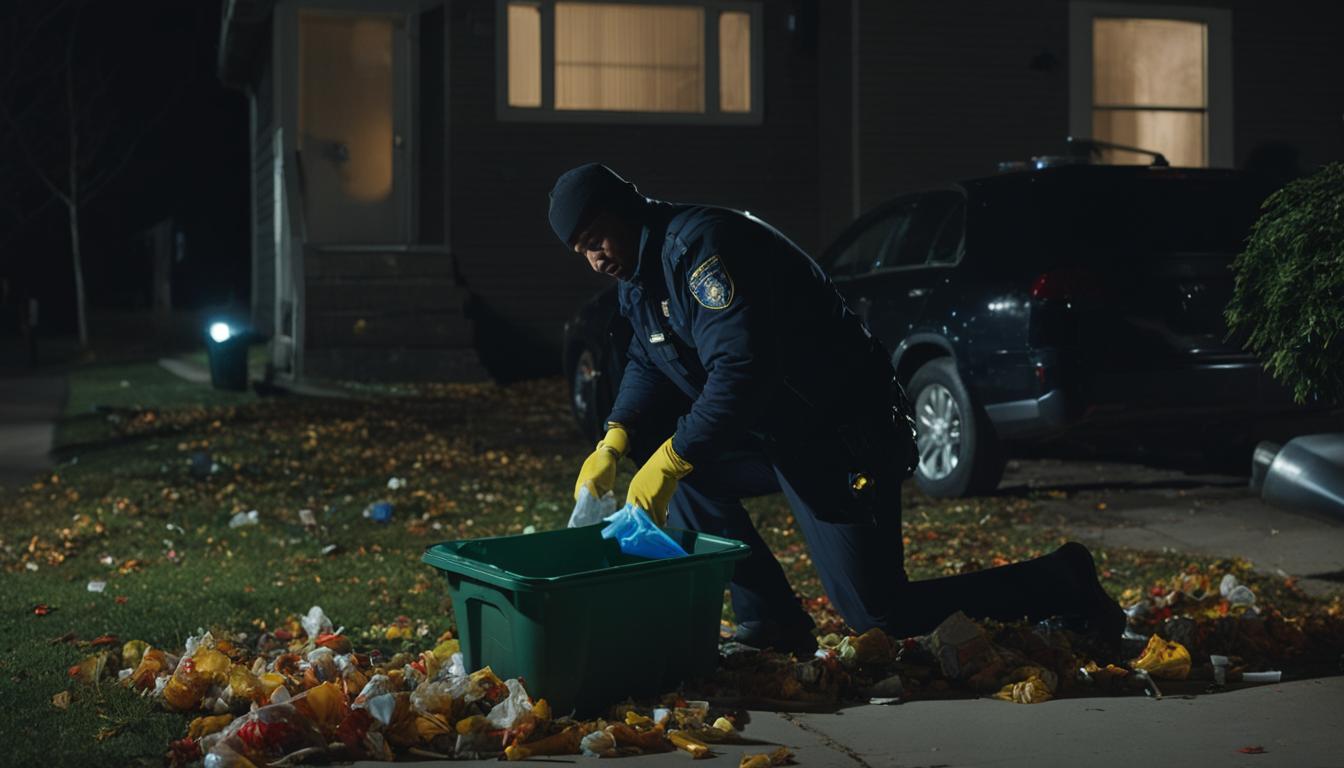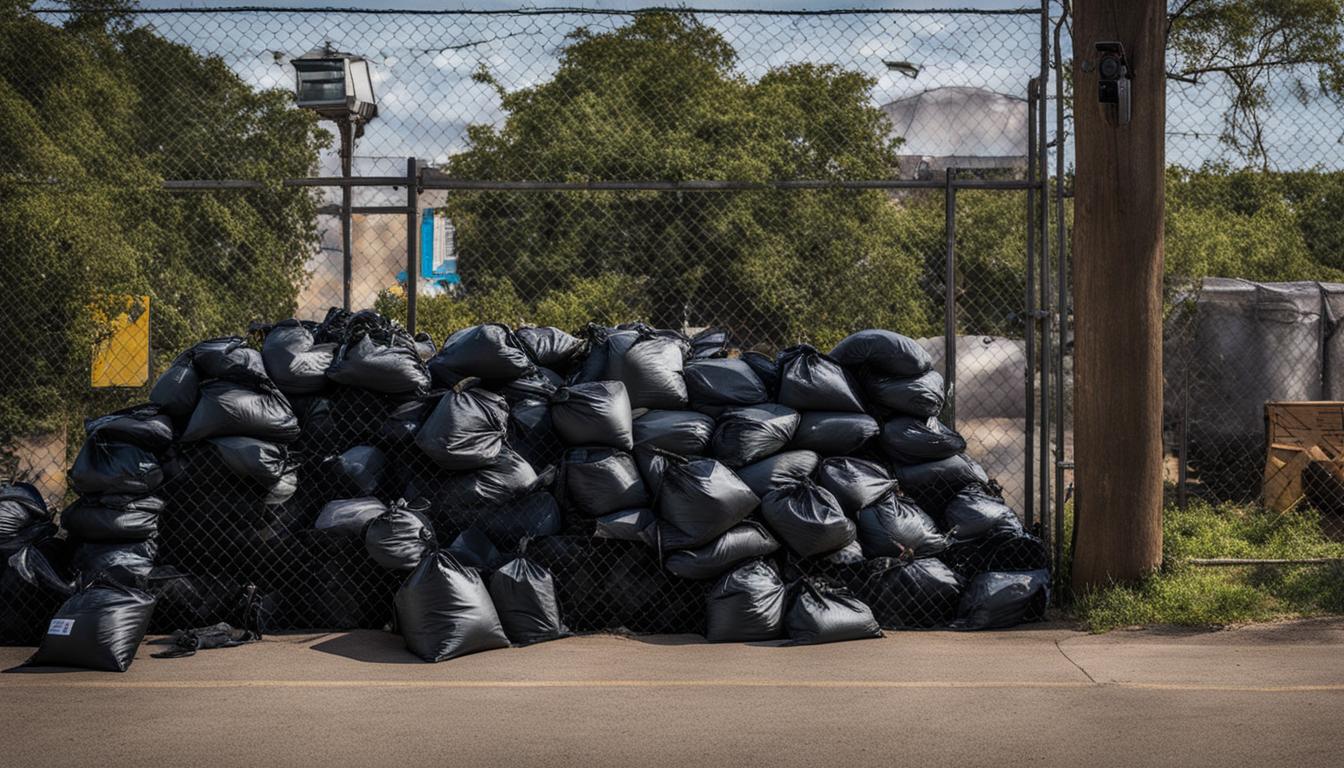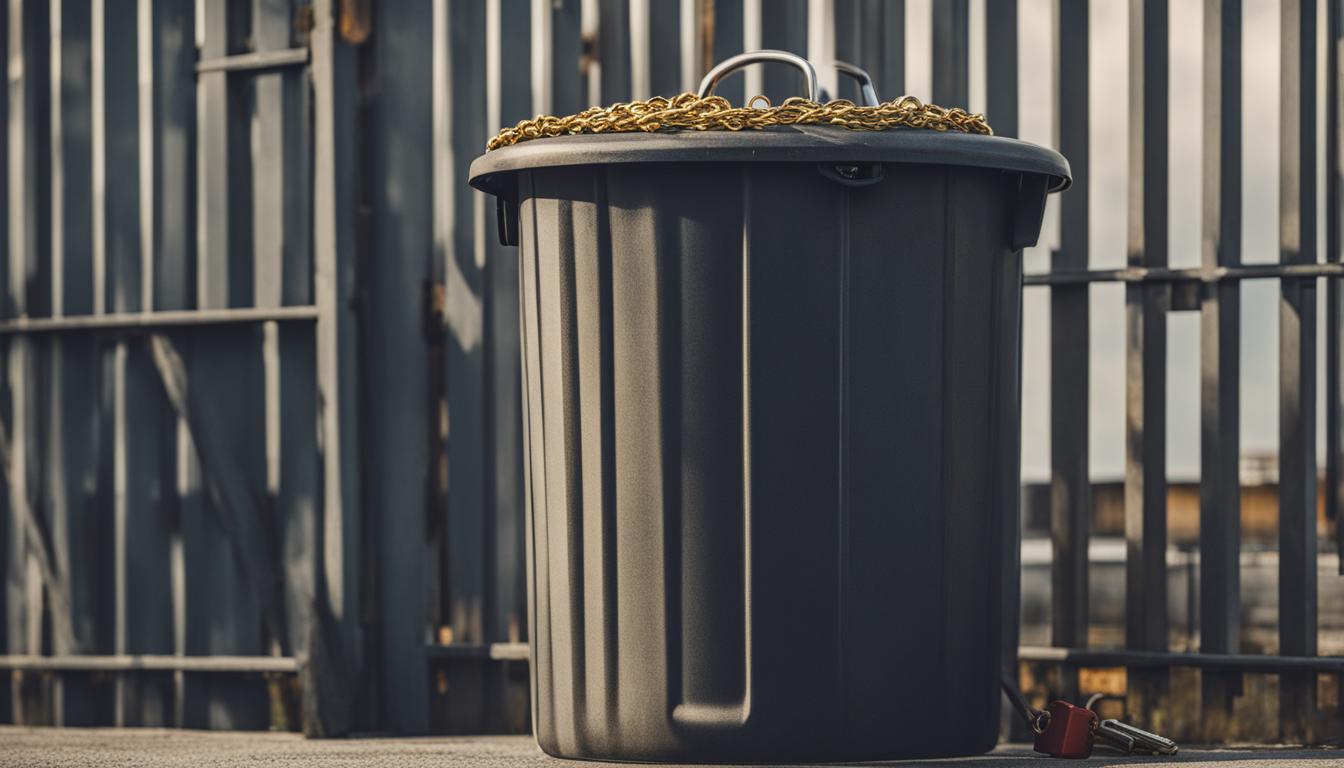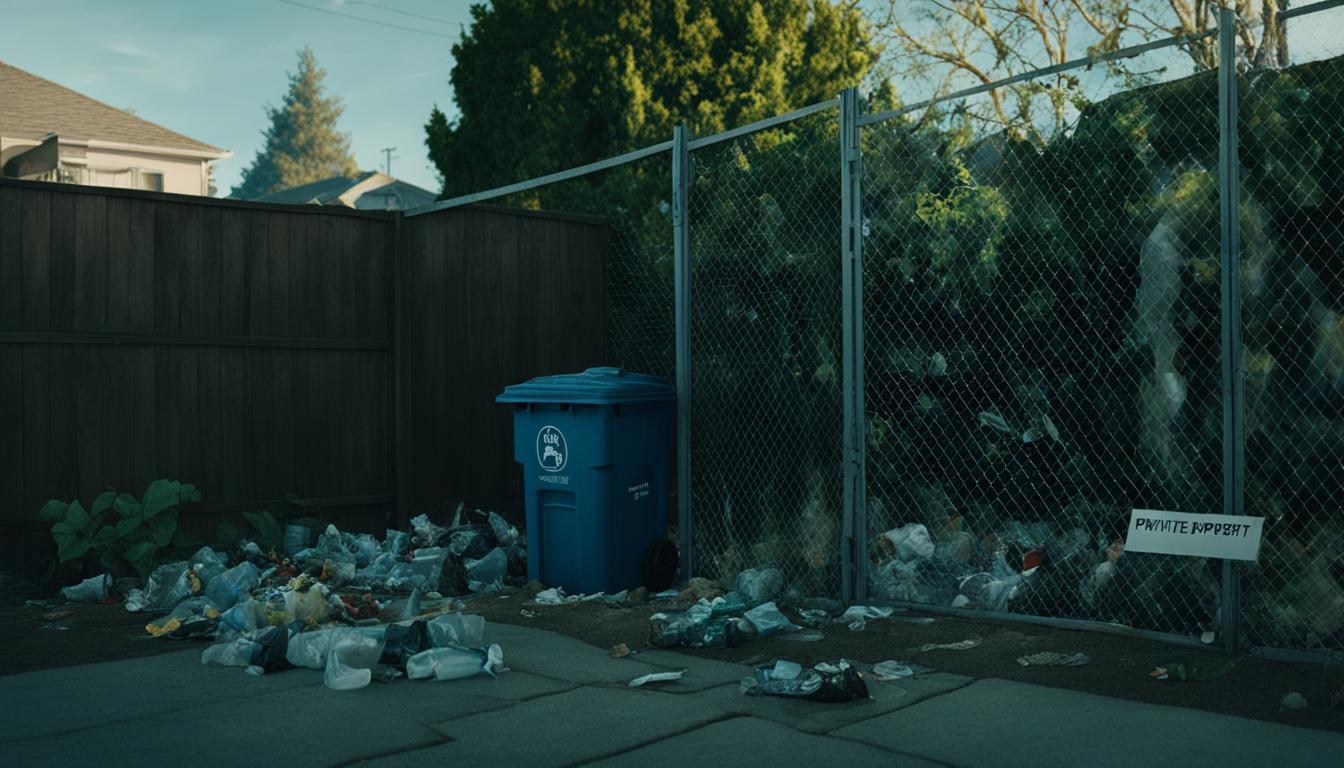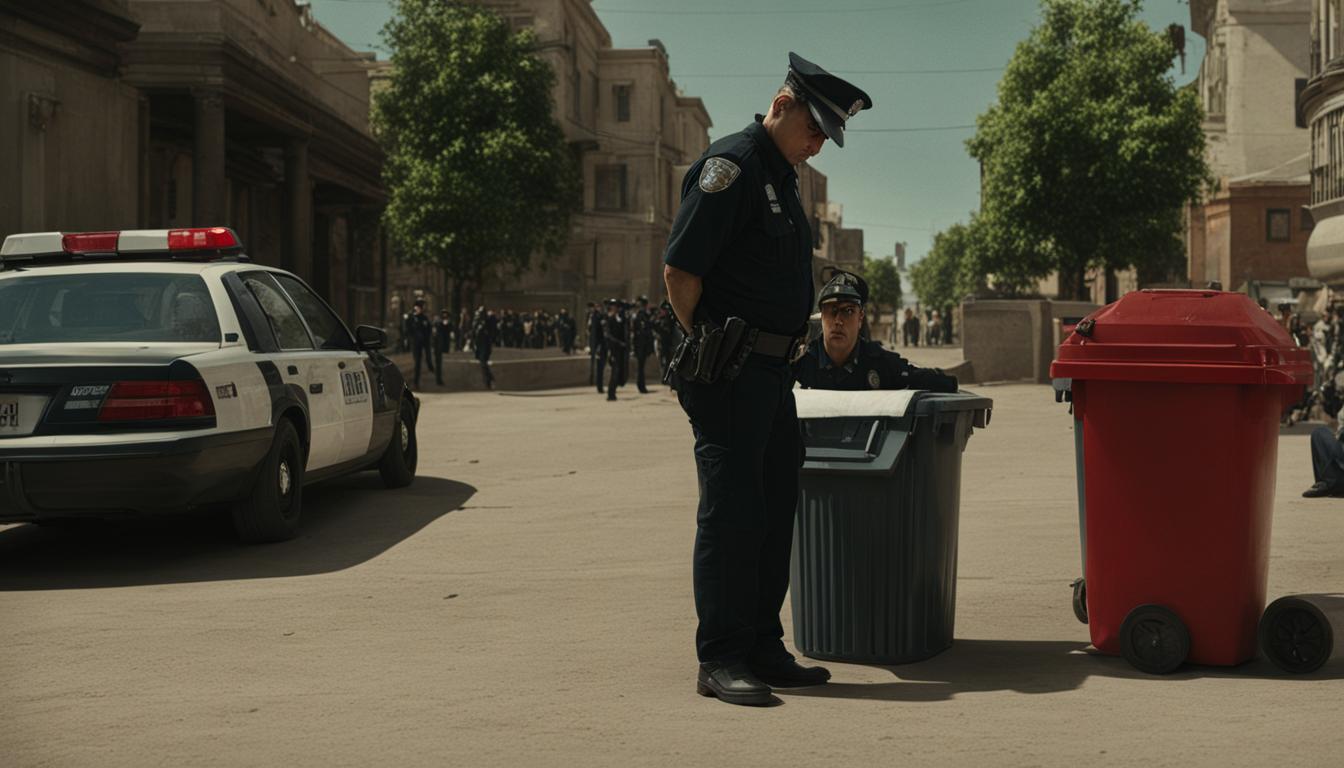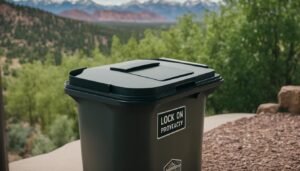Disclosure: This Post Contains Affiliate Links; We earn a commission on purchases.
Are you concerned about the privacy of your trash in Colorado? Do you wonder whether it’s illegal for someone to go through your garbage without permission? Let’s explore the trash diving laws in Colorado and the regulations surrounding dumpster diving to help you better understand your rights and protect your privacy.
Key Takeaways:
- Dumpster diving itself is not technically illegal in Colorado, according to a landmark case in 1988.
- If caught dumpster diving on private property without permission, individuals can be charged with trespassing and disorderly conduct.
- Dumpster diving on public property may also be considered trespassing if there are signs or locks prohibiting access.
- In Colorado, there are currently no specific laws that protect the privacy of garbage or trash.
- To protect your privacy, shred documents containing personal information before discarding them and dispose of sensitive materials securely.
Dumpster Diving Laws in Colorado
Is dumpster diving legal in Colorado? Let’s explore the laws and regulations surrounding this controversial practice.
Dumpster diving itself is not illegal in Colorado. However, there are specific conditions under which it can become illegal. One of them is when dumpster diving is carried out on private property without permission. In such cases, individuals can be permanently barred from the property and may face charges of disorderly conduct.
Additionally, dumpster diving on public property can also be considered trespassing if there are signs or locks explicitly prohibiting access. It is crucial to respect these restrictions to avoid any potential legal issues.
Knowing the laws and regulations regarding dumpster diving is essential to ensure you stay within the boundaries of legality. Always obtain permission from property owners before diving on private premises, and avoid dumpsters with clear signs or locks restricting entry while diving in public areas.
In summary, dumpster diving itself is not illegal in Colorado. However, it is vital to understand and comply with the regulations to avoid any legal complications.
Privacy Protection Laws in Colorado
In Colorado, there are currently no specific laws that protect the privacy of garbage or trash. Once trash is placed outside for collection, it is considered to be in the public domain and does not have the same expectation of privacy as other personal property.
To safeguard their personal information, individuals should take precautions such as shredding documents or disposing of sensitive materials in a secure manner. By doing so, they can prevent unauthorized access to their private information.
Shredding Documents to Protect Privacy
One effective way to protect personal information from falling into the wrong hands is to shred documents containing sensitive data. This includes items such as financial statements, medical records, and any other documents that may contain personal or confidential information. By shredding these documents before disposal, individuals can ensure that their private information remains confidential and inaccessible.
Investing in a good quality cross-cut shredder can provide added security, as this type of shredder turns documents into unrecognizable confetti, making it nearly impossible for anyone to piece them back together.
Secure Disposal of Sensitive Materials
In addition to shredding documents, it is important to dispose of sensitive materials in a secure manner. This includes items such as expired credit cards, identification cards, and electronic devices.
For credit cards and identification cards, it is recommended to cut them into small pieces or use a secure disposal service that specializes in destroying these items. When disposing of electronic devices, individuals should ensure that all personal data is completely wiped off or consider using a professional data destruction service.
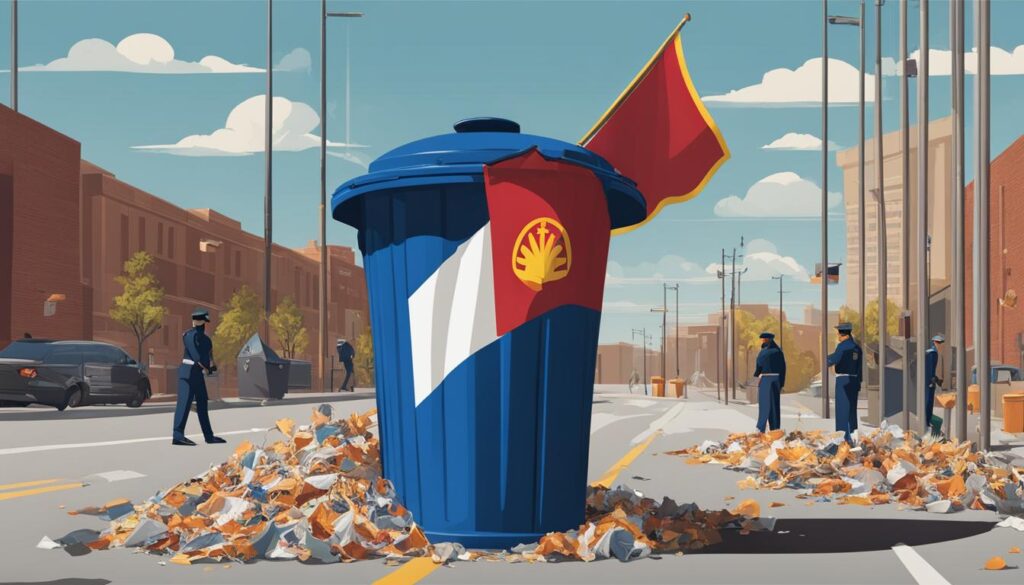
By taking these precautions and being mindful of how personal information is discarded, individuals can effectively protect their privacy and minimize the risk of unauthorized access or identity theft.
Risks of Dumpster Diving
Dumpster diving poses various risks, including the potential for identity theft. Discarded materials such as mail, bank statements, and credit card information can be used to obtain personal information and commit fraudulent activities. Dumpster divers may also be at risk of legal consequences if they trespass on private property or engage in disorderly conduct. Additionally, there are health and safety risks associated with rummaging through trash, such as exposure to contaminants, sharp objects, or hazardous materials.
Identity theft is a significant concern when it comes to dumpster diving. Personal information found in trash can be used by malicious individuals to access someone’s bank accounts, open credit cards in their name, or even steal their entire identity. Dumpster divers who gain access to discarded credit cards or financial statements can easily misuse the information for fraudulent purposes.
Engaging in dumpster diving without proper authorization on private property can lead to legal consequences. Trespassing and disorderly conduct charges may be filed against dumpster divers who enter private premises without permission. Property owners have the right to protect their privacy and property, so it’s essential to respect their boundaries and obtain permission before searching through their trash.
Health and safety risks are prevalent in dumpster diving due to the nature of the materials present in trash. Rummaging through trash can expose individuals to sharp objects such as broken glass, metal scraps, or needles. Dumpsters may also contain hazardous substances, chemicals, or biological waste that can cause harm or spread diseases.
“Dumpster diving poses a risk not only to personal privacy but also to the physical well-being of individuals. Careless handling of trash or exposure to hazardous materials can have severe consequences.”
It is crucial to be aware of the risks associated with dumpster diving and take necessary precautions to mitigate them. By understanding the potential dangers and implementing safety measures, individuals can minimize the risk of identity theft, legal implications, and harm to their health.
| Risks of Dumpster Diving | Potential Consequences |
|---|---|
| Identity Theft | Possible misuse of personal information for fraudulent activities |
| Legal Consequences | Trespassing and disorderly conduct charges |
| Health and Safety Risks | Exposure to contaminants, sharp objects, and hazardous materials |
Ways to Protect Your Privacy
To protect your privacy and minimize the risk of identity theft, it is important to take certain precautions when discarding trash. Safeguarding personal information in trash can significantly reduce the likelihood of your sensitive data falling into the wrong hands. Here are some effective strategies to consider:
Shred Documents Containing Personal Information
One of the most important steps you can take to protect your privacy is to shred any documents that contain personal information before discarding them. This includes items such as mail, bank statements, credit card statements, and any other documents that could be used to obtain personal information. By shredding these documents, you ensure that they cannot be easily read or reconstructed, making it much more difficult for identity thieves to access your personal data.
Dispose of Sensitive Materials in a Secure Manner
In addition to shredding documents, it is crucial to dispose of sensitive materials in a secure manner. Instead of simply throwing them in the regular trash bin, consider using a secure trash bin specifically designed to protect against identity theft. These bins are often lockable or tamper-proof, ensuring that unauthorized individuals cannot access the contents. Alternatively, you can hire a professional shredding service to properly dispose of your sensitive materials, providing an extra layer of protection for your personal information.
Be Mindful of What You Discard
In order to prevent identity theft, it is essential to be mindful of what you discard. Make a habit of reviewing and removing any personal or sensitive information from items before throwing them away. This includes removing labels or shredding prescription bottles, cutting up expired credit cards or IDs, and deleting personal data from electronic devices before disposing of them. By being vigilant about what you discard, you can significantly reduce the risk of your personal information being used maliciously.
Additional Tips:
- Consider using a cross-cut shredder for enhanced document destruction.
- Keep your trash bins secure and inaccessible to unauthorized individuals.
- Avoid throwing away items with your full name, address, or other personal details without properly disposing of them.
- When disposing of electronic devices, ensure that all data is permanently erased and unrecoverable.
Protecting your privacy while discarding trash is essential to prevent identity theft and safeguard your personal information. By implementing these strategies and staying vigilant, you can significantly reduce the risk of falling victim to identity theft.

| Ways to Protect Your Privacy | Brief Description |
|---|---|
| Shred Documents Containing Personal Information | Shred any documents that contain personal information before discarding them to prevent unauthorized access. |
| Dispose of Sensitive Materials in a Secure Manner | Use secure trash bins or hire professional shredding services to properly dispose of sensitive materials. |
| Be Mindful of What You Discard | Review and remove any personal or sensitive information from items before throwing them away. |
| Additional Tips | Use cross-cut shredders, keep trash bins secure, and properly erase data from electronic devices before disposal. |
Conclusion on Trash Diving Laws in Colorado
While dumpster diving itself is not illegal in Colorado, individuals must be cautious about where they engage in this activity. It becomes illegal when done on private property without permission, potentially leading to charges of trespassing and disorderly conduct. Although there are no specific laws protecting the privacy of garbage or trash, individuals can still take steps to safeguard their personal information.
One important measure is the proper disposal of sensitive materials. Shredding documents containing personal information before discarding them can help prevent unauthorized access to sensitive data. Additionally, individuals should be aware of the risks associated with dumpster diving, including the potential for identity theft due to discarded documents like bank statements or credit card information.
By understanding the legislation surrounding dumpster diving and taking precautions to protect their privacy, individuals in Colorado can reduce the risk of identity theft and safeguard their personal information.
Source Links
- https://www.legalmatch.com/law-library/article/is-dumpster-diving-illegal.html
- https://95rockfm.com/dumpster-diving-colorado-laws/
- https://residentnews.net/2020/04/02/is-it-legal-for-someone-to-go-through-your-trash/

Subscribe to Our Newsletter

